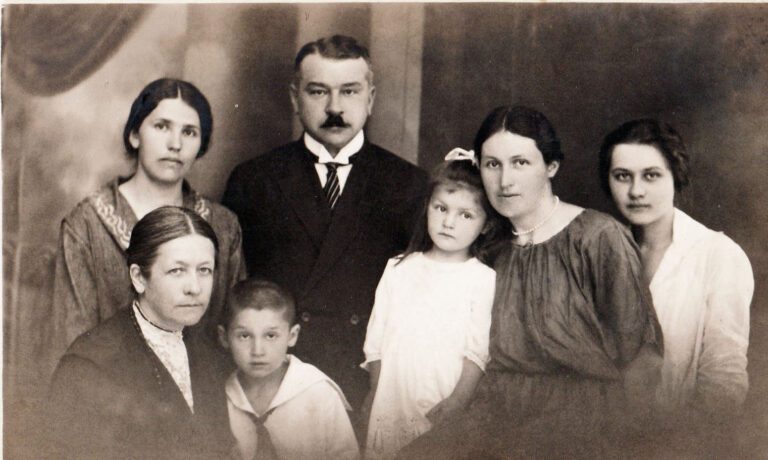By George Kovach (with Julia Odegard)
“If you want to make an omelet, you have to be willing to break a few eggs.” V.I. Lenin
“Comrade, I see broken eggs everywhere. But where, oh where, is the omelet?” A Bolshevik worker.
Broken Lives. A True Story of Revolution and Exile.
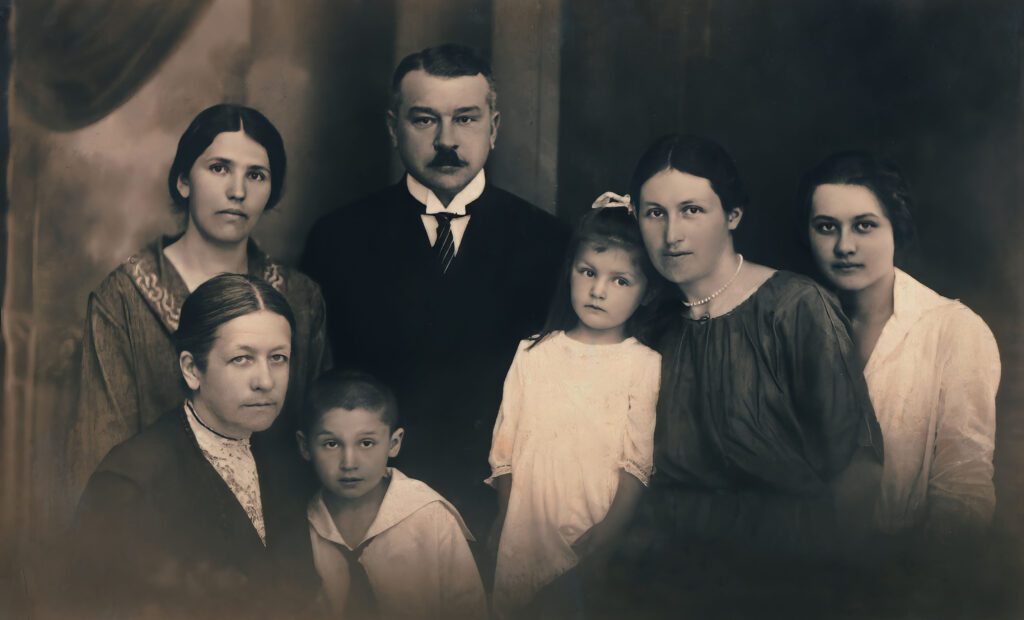
Pictured here is my family in 1920, exiled from their homeland which was near Kiev in the Ukraine. This is the story of their flight from war and revolution into exile.
Imperial Russia looked forward to a hopeful future.
At the beginning of the Twentieth Century, Europe and Russia looked forward to a hopeful future. A new age of technology. Railways, electricity, cinema, photography, aircraft, and new discoveries in science and medicine promised to change the world for the better. Russia stood to reap the benefits of the new age, helped by her long association with Europe.
1895 – Life at the Sunset of the Nineteenth Century.
Children born at the sunset of the Nineteenth Century were to be a new generation for a brilliant new Twentieth Century in Russia. My grandmother often told me how excited and optimistic everyone was about the coming century and what the future would bring.
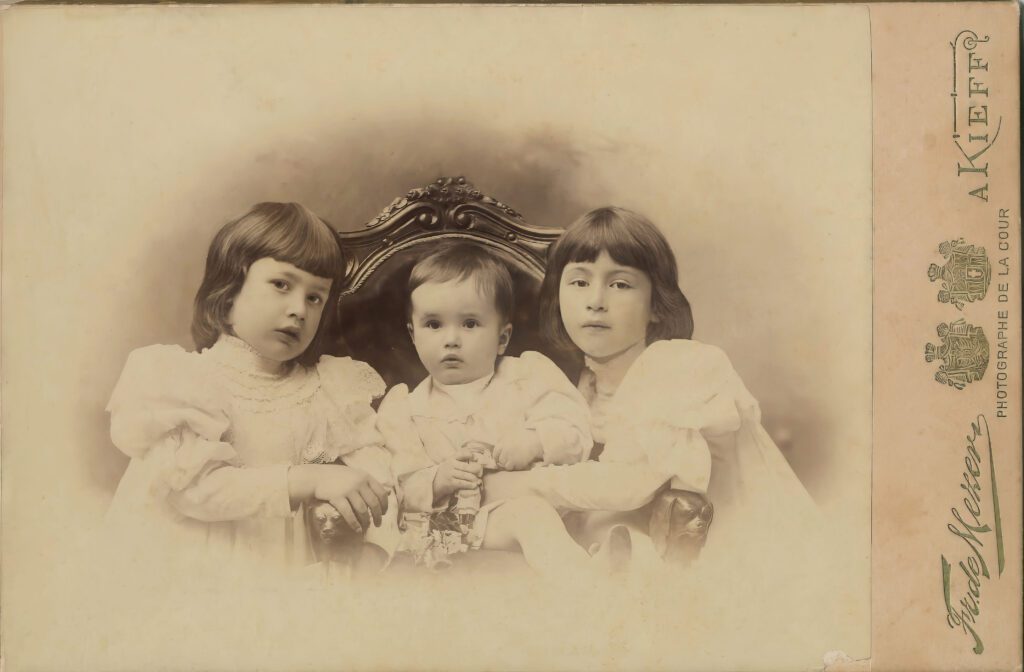
Julia, her sister, Kyra, and their baby brother Anatole grew up in a rural setting in the Ukraine. Surrounded by forests and fields of grain, they roamed the countryside with friends from the local families, learning about life on a farm, picking mushrooms and fruit from the orchards. Julia, Kyra and Anatole expected a life of peace, progress, and adventure. The future looked bright ahead.
Unfortunately, the great expectations of this family, and so many others, never came to pass.
1912 – Julia Gudym-Lefkovich – The Brains of the Family.
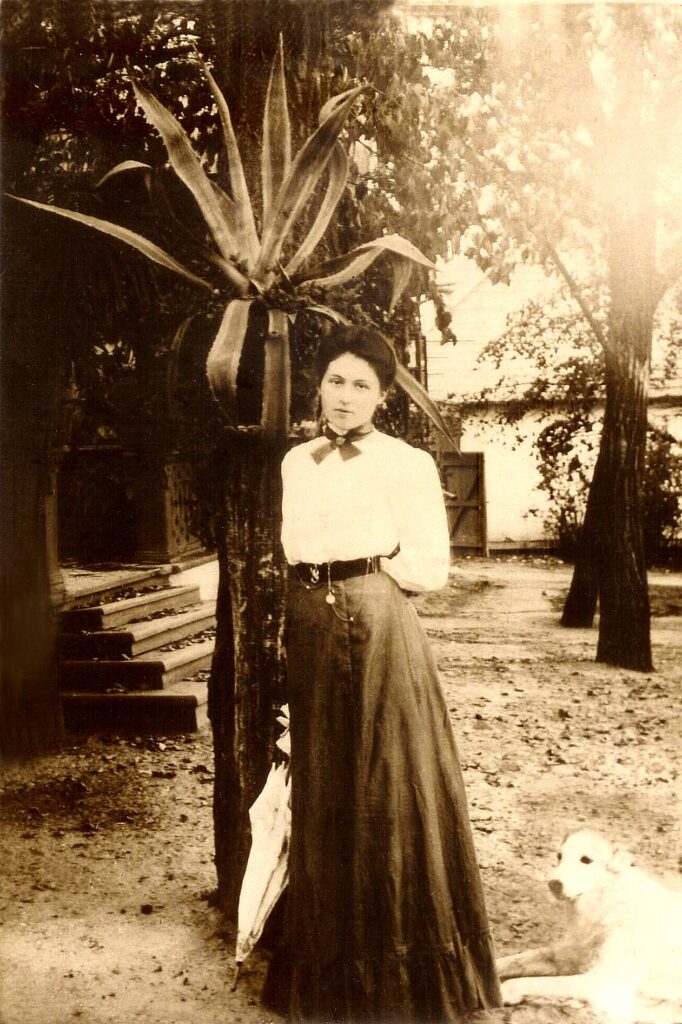
My maternal grandmother Julia was the brains of the family, with a burning desire to become a doctor. However, her mother refused to let her attend the University of Saint Petersburg, where long-haired revolutionaries might expose her to radical ideas. She also argued that proper young ladies married a respected neighbor. So Julia waited until she was of legal age to decide her future for herself. Meanwhile, she taught herself Latin, Greek, and higher math, devouring books on all the subjects she needed for admission to university. Subjects she had not learned in finishing school. As soon as she turned 21, she left home and moved to St. Petersburg to live with her uncle.
Mother was right.
Just as her mother predicted, she did encounter young revolutionaries at the university. Nevertheless, Julia’s mother need not have worried. Radical young idealists had no influence on my grandmother. Rather, their ignorance of the true nature of the Russian people, outside of the rarified world of academia, amazed her. They seemed to know nothing about the people of the countryside. For them, the Russian peasants existed only as symbols of imperialist oppression or useful tools in their fight to transform Russia.
Surprisingly, after graduating in Biology, Julia did marry that neighbor, a man with a charming sense of humor and love of the rural life she preferred.
Even after her marriage, my grandmother continued to study medicine in preparation for final exams to become a doctor. In the meantime, she put her medical skills to work helping the local people at a free clinic she set up near their farm. Women, especially, came to her for medical advice and help.
During the Revolution, her knowledge of English saved her family’s life when they were on the run from the Bolsheviks. When they were driven into exile, she put the many languages she had learned to good use giving French, German and English lessons to help her make a living.
1913 – Europe’s Last Glorious Summer.
“The tenacity of the bourgeoisie is colossal. We are forced to tear off this class and chop it away.” Leon Trotsky
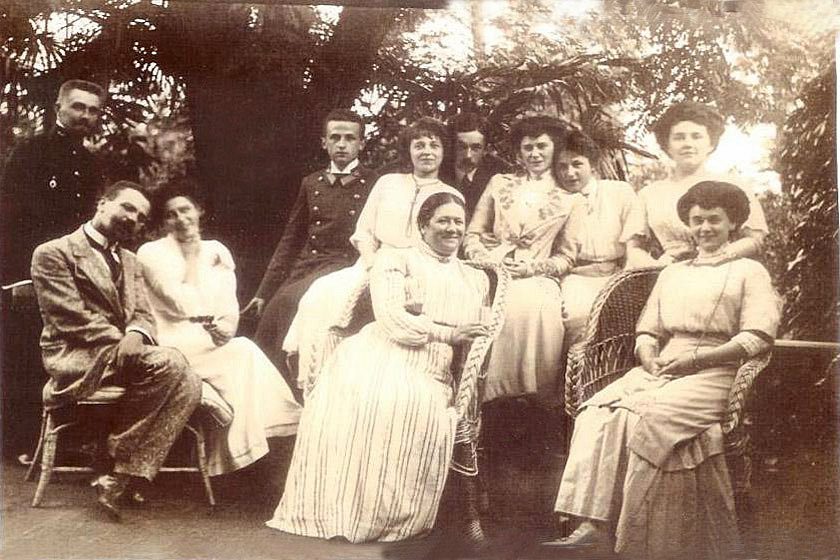
This is a picture of my grandmother’s family on the eve of the Great War. Everyone was optimistic about the new century. The scientific and technological miracles of the 19th century held promise of even greater things to come. It seemed that human knowledge was accelerating at extraordinary speed. The future of humanity could only get better and better.
Russia, after the 1905 revolution, could visualize finally becoming fully European. At this time, Russia’s economy grew faster than any other economy in Europe. Russia finally established a limited parliament called the Duma, also freedom of the press, and an independent judiciary. Much work remained, but Russians saw evidence of real progress.
And yet, just four years after this happy summer, their world had vanished. Many died fighting to save the Russia they knew and loved. Others, branded as class enemies, died at the hands of idealistic revolutionaries. Those who survived faced either a miserable life of hunger and fear in the new Soviet Russia, or lived out their lives in exile, never to return to their homeland.
Looking back, it’s highly doubtful that the Russian Empire could have survived. Ethnic minorities comprised too large a segment of the population. However, a peaceful break-up of the Empire, like the later peaceful break-up of the Soviet Union, still could have happened. A gradual transition of the Russian heartland to a constitutional monarchy, a republic, or a social democracy was possible. The totally unnecessary Great War brought an end to any peaceful resolution of the problems of the Russian Empire.
1913 – New Hope for Russia
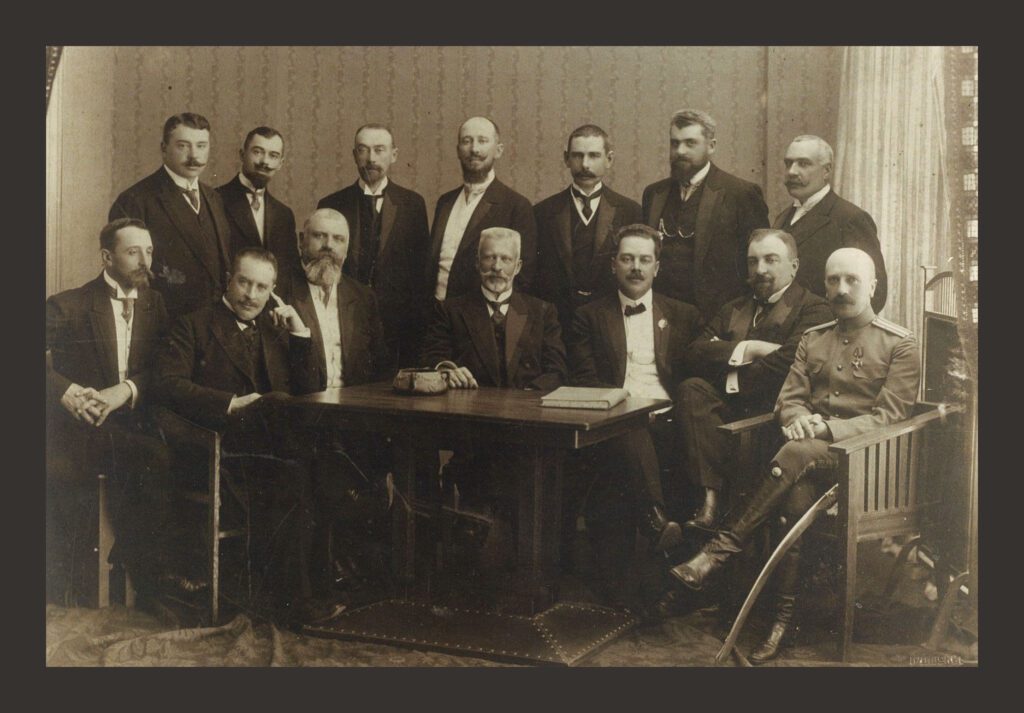
A picture of a provincial zemstvo. My maternal grandfather, George von Gersdorff, stands on the far left.
Zemstvos, a form of local self-government, like our county or state governments, functioned on the district and provincial level. They were elected on a limited franchise. Zemstvos had powers of taxation, dealt with local education, medical relief, road maintenance, sanitation, etc. These elective bodies came into being during the Great Reforms of Alexander II in the 1860’s. Through them, many believed that Russia’s problems could be peacefully resolved.
My grandfather, a liberal constitutionalist, became governor of his province during the short provisional government after the February Revolution. The zemstvos then became full-fledged institutions of state and municipal self-government. Any citizen could be elected to them.
The Bolsheviks abolished the zemstvos after the coup d’etat of October 1917, and gave orders for any elected official of these institutions to be shot as a “class enemy.” Unfortunately, my grandfather was an officer, not only in the Great War but also during the Civil War, which put him on the Bolshevik’s list of enemies. During that time, he lived a rather precarious life running and hiding from the Bolsheviks who had orders to shoot him on site. It is a miracle, and a testament to the loyalty of his friends and family, that he survived at all.
1913 – A Marriage in the Autumn of the Empire
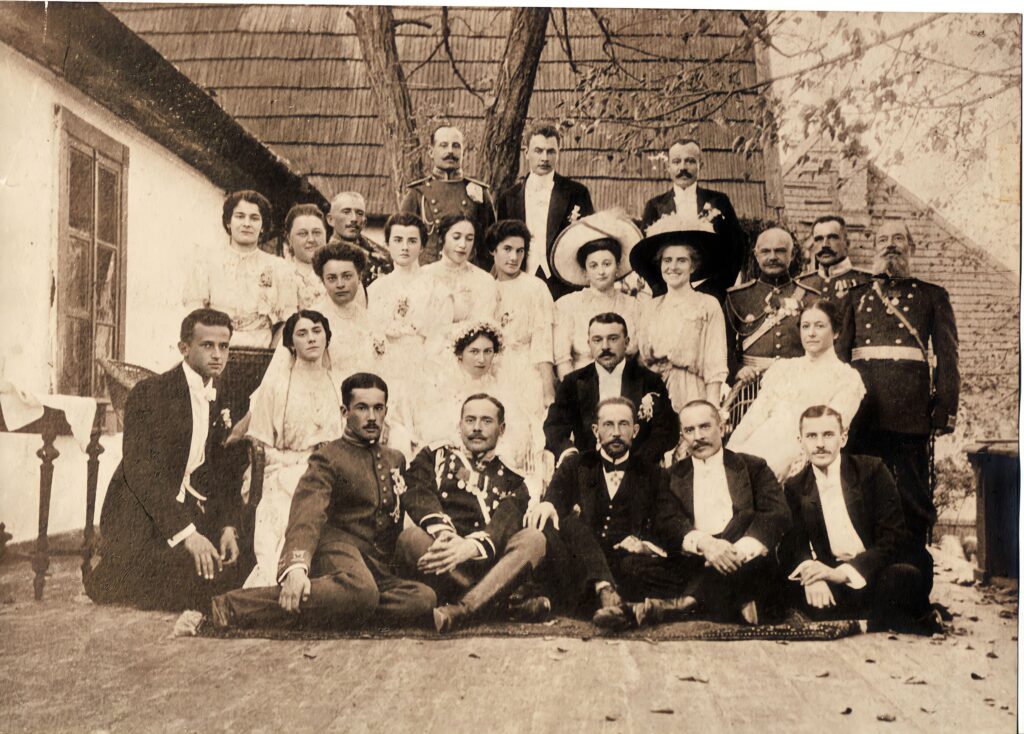
My grandmother and grandfather married in October of 1913. Family and friends gathered in the country to wish the couple health and happiness.
Their honeymoon granted my grandmother’s dearest wish – to see Italy. For one blissful month they travelled that charming country, marvelling at ancient ruins, enchanted by glorious works of art, and inspired by the myriad of churches.
Only a few short months after their return, war was declared in Europe. The Great War. The war to end all wars. The war that destroyed the promise of the Nineteenth Century and left an entire generation of young men dead or maimed in body and mind. It was also the war that insured the demise of Imperial Russia.
1916 – A Loyal Soldier – A Class Enemy
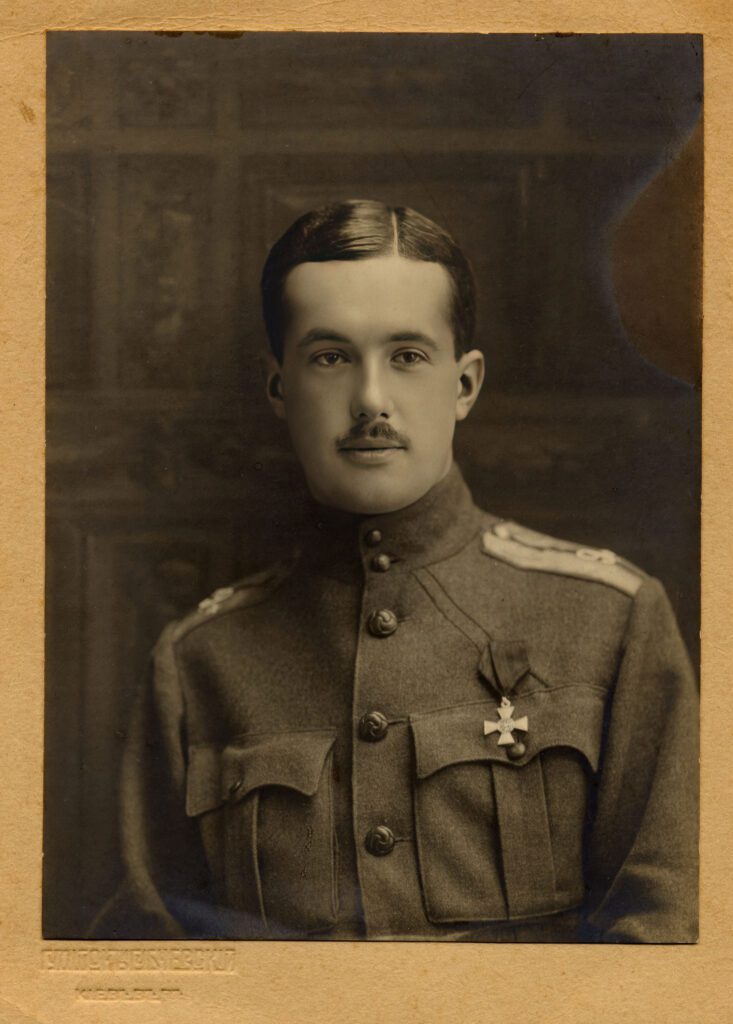
This is my great uncle Anatole, my grandmother’s brother, the baby boy you saw in the earlier photo. My uncle took a keen interest in the arts, and reputedly had a lovely singing voice. In 1914 he joined the army to fight on the side of Russia in the Great War. For his courage in World War One, he was awarded the Saint George Cross, Russia’s highest medal for bravery.
After the Revolution, he fought with the White Army and died in battle fighting the Bolsheviks to save the Russia he knew. His final burial site is unknown.
1914 – 1918 – Humanitarian Service will not save you.
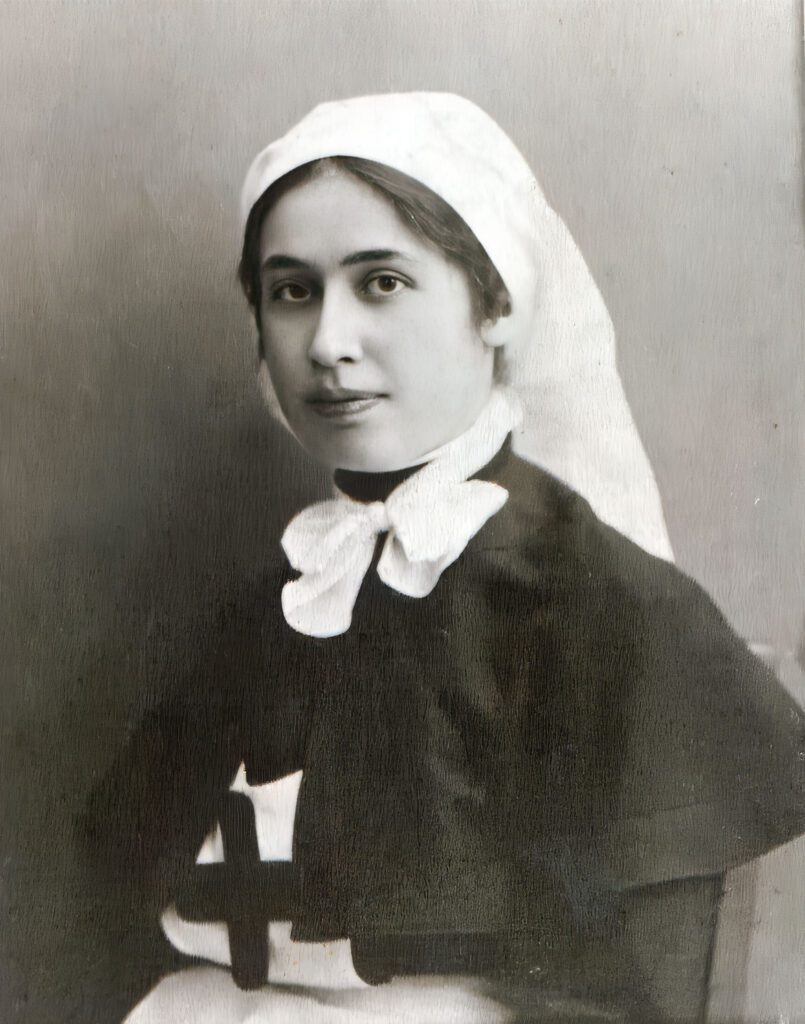
Kyra Gudym-Lefkovich, my grandmother’s sister. Like her brother Anatole, Kyra left her home in the countryside to help the war effort. For four years she tended the wounded and dying at the front. She was one of the few nurses awarded the Saint George Cross for bravery under fire.
However, the Bolsheviks saw no worth in the self-sacrifice of a courageous humanitarian. Kyra belonged to the wrong class and was of no use to them. Forced to go into hiding, she barely escaped the new People’s Utopia with her life. She died young in exile from the complications of typhus acquired during the war.
1920 – A Journey into Exile
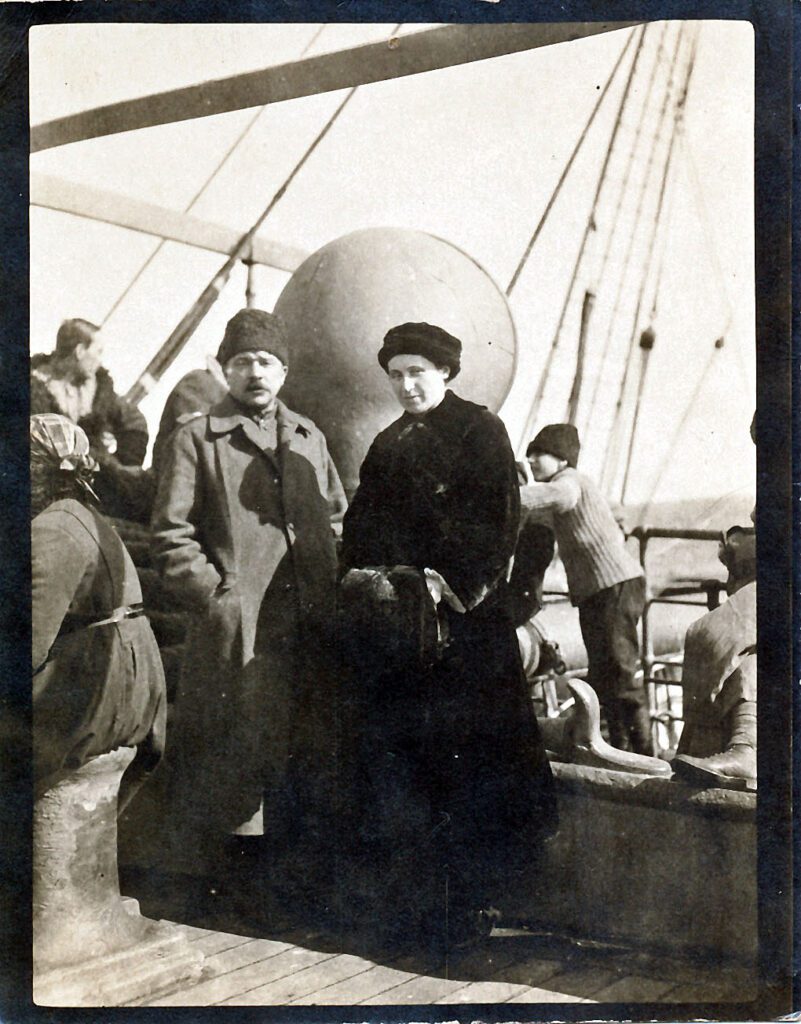
My grandfather and grandmother barely made it out of Russia alive. Pictures of them had been posted in the towns they stayed in on their flight. The message on the photos was to capture them or shoot them, whichever was most expedient to the captor. Through the bravery and extreme kindness of friends and strangers alike, they made it to the last steamship out of Odessa in January of 1920.
Even there, their future was unsure. When they arrived at the port, the officer told them the ship could take no more passengers. My grandmother held up my one-year-old mother – little Galya. “You see this child?” my grandmother said in her perfect English. “If you do not let us on your ship, she will die at the hands of the Bolsheviks. They have no use for her.” It was at that moment that my one-year-old mother reached out her little hand and grasped the gold button on the officer’s uniform. He looked down. She looked up at him and smiled. That smile saved their lives. The officer smiled back and let them board.
When the Red Army captured Odessa, they murdered thousands of refugees and sent the rest to concentation camps where most died of disease.
A Poignant Farewell
Imagine what it is like to stand onboard that ship and watch the country of your birth, the country you love, recede slowly into the distance, never to be seen by you again. To leave friends and family behind, brothers who are doomed to die in battle trying to save their country, relatives who have either been murdered or sent to concentration camps to be worked to death. To realize your future will be nothing like your past. That you face poverty, hunger, bitter hardships, unfamiliar customs, and people strange to you, who speak a language you do not know. To wonder how you will be able to keep safe those you love. The torture of the soul known as exile.
1921 – A New Generation Faces a Precarious Future
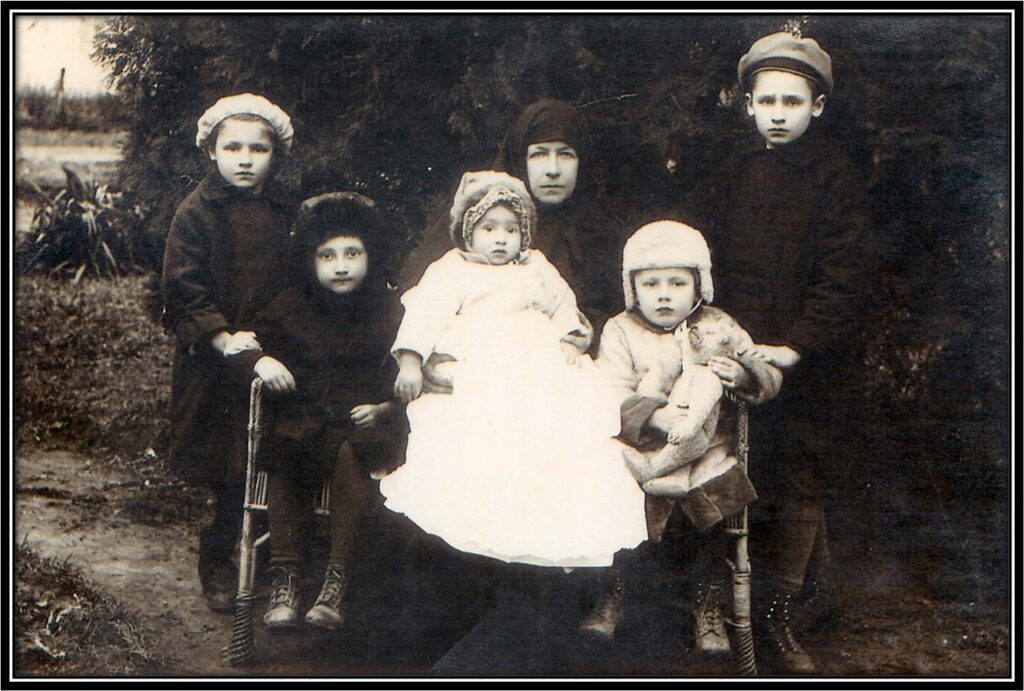
My great-grandmother, Varvara, is pictured here with her grandchildren. They have all barely escaped the Bolsheviks and have found sanctuary in Yugoslavia. That my great-grandmother is in this picture at all is a miracle. During the Revolution she too was hunted by the Bolsheviks.
At one point, in desperation, she took refuge in an insane asylum. Another time she was captured and put in a prison. When she was asked to recite the nature of her crime she looked the Bolshevik guard in the eye and said, “I was arrested because twenty years go Captain Dragomirov married my sister.” Clearly, her family associations were toxic.
From this point on, Varvara only wore black in mourning for her son, Anatole, who died in battle fighting the Bolsheviks. Her grandchildren would grow up in a foreign land. They would make friends, go to school, have hopes and dreams.
And yet, in a little over a decade they would face a new political upheaval and an entirely new world war.
